What is Diabetic Eye Disease?
Eye problems as a result of complications of diabetes are called diabetic eye diseases.
Problems with diabetic eye disease:
• Diabetic Retinopathy: Damaged veins on the retinal network layer.
• Cataract: The ocular lens gets blurred and loses the opacity. Cataract is seen at the early ages with the diabetes patients.
• Glaucoma: Increasing intraocular pressure and damaging the visual nerves. People with diabetes has the double risk of glaucoma.
What is Diabetic Retinopathy?
The structure of the veins is degenerated, and bubbles occur, lead to bleedings and leakage of the fluid from the veins to the surrounding tissues. On the later stages, new buds occur on the retina and leads to sudden intraocular bleeding.
The visual impairment develops at the later stages of diabetic retinopathy. Because of that a diabetes patient who doesn’t have any problem with the vision also should have regular examinations. Both eyes are mostly gets affected by diabetes and might lead to blindness
Stages of Diabetic Retinopathy
1) Light Non-proliferative diabetic retinopathy: In this early stage, microaneurysms - bubbles occur on retinal veins.
2) Mid Non - proliferative diabetic retinopathy: Vascular occlusions occur on the veins and bubbles on the retinal veins are increased.
3) Heavy Non-proliferative diabetic retinopathy: Lack of oxygen in the retina is present, vascular occlusions & bleedings increased.
4) Proliferative diabetic retinopathy: Lack of oxygen in the retina is increased, retina is unnourished and danger signals are sent to the brain after the appearance of unreliable new veins. These new veins are very fragile, carrying the risk of bleeding and sudden visual impairment.
Who Has the Risk of Diabetic Retinopathy?
Everyone who has the Type 1 and Type 2 Diabetes, has the risk of Diabetic Retinopathy. Every single diabetes patient should have a detailed retinal examination at least once a year with the pupils dilated. The risk of diabetic retinopathy increases directly related to the history of diabetes disease.
Pregnancy is also a risk for those who has diabetes. Retinal examinations should be performed often during the pregnancy.
What Are the Symptoms of Diabetic Retinopathy?
Diabetic retinopathy is an insidious disease. There are no obvious symptoms at the early stages, and it is a painless disease. Symptoms shouldn’t be waited to have an examination; it is recommended to have a check at least once a year. Blurry vision occurs as a result of accumulation of macular oedema at macula. At the later stages, if the undesirable and unhealthy veins occur, they might bleed suddenly, and visual impairment can immediately occur.
What are the Indications of Proliferative Retinopathy in the Case of Bleeding?
Seeing flying objects is the first and most common indication in case of sudden bleeding. The vision might be totally black after a while. In the case of seeing flying objects, it is recommended to have a detailed retina examination and have the necessary treatment. If not, bleeding increases and the loss of vision is expected. Sudden bleedings are mostly experienced early in the morning when sleeping. In some cases, the bleeding stops itself and the vision comes back. However, this is a misguiding situation and there is the high chance of relapse. An examination is a must in every case of bleeding
Diabetic retinopathy ends up with visual impairment if not treated. An early diagnoses & treatment can help you keep your vision.
Detailed Retinal Examinations and Tests of Diabetic Retinopathy
Visual Acuity Test: Is a test from a certain distance to examine Woll-alike stains how well the patient can see.
Retinal Check: Pupils are dilated with certain drops and a detailed examination of retina is performed with different kinds of lenses.
Fluorescein Angiography: A fluorescein angiography might be recommended by your physician during the retinal check if needed. A colorant is injected through the veins and retinal photography is performed from both eyes in order to generate a map of retinal veins. Treatment is given accordingly.
Optical Coherence Tomography: OCT device is used lately in order to detect the macular oedema and follow. Without any intervention, real-like sequences of the macular area are obtained via diode laser. OCT also gives us detailed intelligence about the macular oedema.
How is Diabetic Retinopathy Treated?
Especially in the early stages, there is no need for a treatment if there is no macular oedema. Blood sugar, blood pressure and cholesterol should be under control in order to prevent diabetic retinopathy progress.
Laser treatment should be applied to the whole retina in the case of proliferative diabetic retinopathy. This treatment is mostly 2 or 3 sessions. This treatment should be started before any intra ocular bleedings.
It is unfortunately not possible to perform this treatment in the presence of strong bleeding. Vitrectomy operation is suggested if the bleeding is very dense. Blood is completely cleaned with vitrectomy and laser is performed.
How Diabetic Macular Oedema is Treated?
Diabetic macular oedema is treated by laser. Mostly, one session is enough however on some occasions the treatment might be repeated. If there is macular oedema in both eyes one should be treated a few weeks after another.
Generally, diabetes related risk of visual impairment is prevented %90 percent with laser. However, the laser cannot help for the improvement of vision loss. Because of that, early diagnoses and treatment is important. Nowadays there are also alternative treatments to laser for the diabetes related macular oedema. Anti – VEGF medicines might help treating the macular oedema by preventing the formation of new unhealthy veins and preventing the leakages which leads to macular oedema.
These medications, which are injected in the eye can be used together with the laser or alone and might improve the vision. But it should be kept in mind that Anti – VEGF treatment is a surgical intervention and an injection inside the eye. So, there are the risks of infection, retinal tears. It should be performed in a sterile operating theatre by experienced surgeons
Treatment of the Bleeding Caused by Vitrectomy Surgery in Diabetic Retinopathy
Vitrectomy is performed if there is intraocular bleeding related to diabetic retinopathy. Vitrectomy can be performed under general or local anaesthesia which will be decided together with the patient. The vitreous gel and bleeding are cleaned with special thin devices which are entered through very tiny holes that are created on eye wall. The suctioned gel is replaced with a medical liquid called “balanced salt solution”. In the same surgery, retinal laser treatment is also mostly performed together. One month of protective eye drops are prescribed mostly.
Diabetes is a systemic disease. The health of the eye is directly related to blood sugar, arm tension and cholesterol. A total treatment of diabetic retinopathy is not possible. Some damages are permanent. The treatments might fix some of the complications that diabetic retinopathy may have caused.
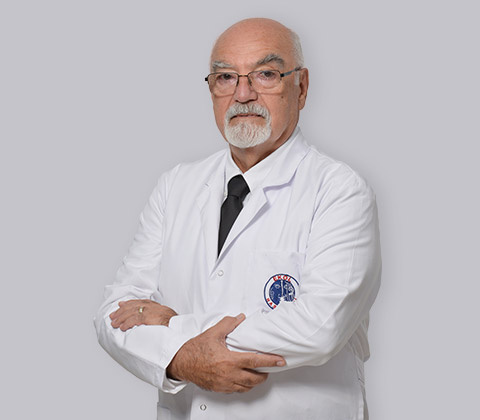 He was born in Ankara in 1945. He attended TED Ankara College, İzmir Bornova Anatolian High School and Ege University, Faculty of Medicine between 1963 and 1969, respectively. Upon his graduation, he started his specialization at Ege University, Faculty of Medicine, Eye Diseases Department and assumed the title of Eye Diseases Specialist in 1971. Between 1974 and 1975, he performed his military service as an ophthalmologist in Hatay Military Hospital in İzmir. After that, he was educated on Retinal Diseases and Lasers in Ophthalmology Clinic of the Faculty of Medicine at University of Gant, Belgium for 1 year. In 1977, he assumed the title of Associate Professor of Ophthalmology, and he founded and operated Retina and Contact Lenses units in Ege University, Faculty of Medicine, Department of Eye Diseases. In 1982 he became a Professor of Eye Diseases. Between 1992 and 2000, he served as the Head of Department of Eye Diseases, Faculty of Medicine, Ege University. In the meantime, he published 3 books and more than 150 domestic and foreign scientific papers, and about 170 papers in national and international congresses. He is married to Dr. Nigar Erbakan and has two sons.
He was born in Ankara in 1945. He attended TED Ankara College, İzmir Bornova Anatolian High School and Ege University, Faculty of Medicine between 1963 and 1969, respectively. Upon his graduation, he started his specialization at Ege University, Faculty of Medicine, Eye Diseases Department and assumed the title of Eye Diseases Specialist in 1971. Between 1974 and 1975, he performed his military service as an ophthalmologist in Hatay Military Hospital in İzmir. After that, he was educated on Retinal Diseases and Lasers in Ophthalmology Clinic of the Faculty of Medicine at University of Gant, Belgium for 1 year. In 1977, he assumed the title of Associate Professor of Ophthalmology, and he founded and operated Retina and Contact Lenses units in Ege University, Faculty of Medicine, Department of Eye Diseases. In 1982 he became a Professor of Eye Diseases. Between 1992 and 2000, he served as the Head of Department of Eye Diseases, Faculty of Medicine, Ege University. In the meantime, he published 3 books and more than 150 domestic and foreign scientific papers, and about 170 papers in national and international congresses. He is married to Dr. Nigar Erbakan and has two sons.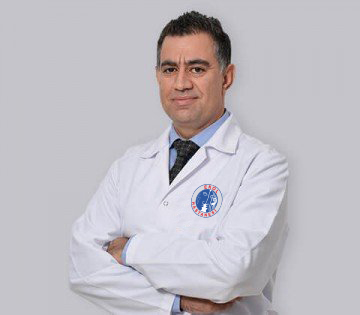 Dr Esat Çınar was born in Diyarbakır in 1976. He started İstanbul University, Faculty of Medicine in 1997 and graduated in 2003. He completed his speciality degree between 2003 and 2009 at İzmir Ege University, Faculty of Medicine, Ophthalmology Department. He was in charge of Glaucoma and Cornea Departments as a Deputy Associate Professor in İzmir University Hospital Faculty of Medicine, Department of Ophthalmology. He studied “Keratoplasty” in Ege University, Faculty of Medicine for 6 months (also known as “eye transplant”). He also was in charge of the controls of the premature babies’ in İzmir University Ophthalmology Department. He attended the course for vivisection both in clinical and laboratory fields for one month. His special interests are; Cataract surgery (multifocal, trifocal and thoric intraocular lenses), Cataract surgery with laser (Femtosecond Cataract), Keratoplasty, glaucoma surgery (non-penetrant surgeries such as viscocanalostomy, deep sclerotomy), Excimer Laser Surgeries (Lasik, Lasek, PRK), medical retinal diseases. He has many published articles in international indexes. He has many verbal and written presentations in national and international scientific meetings. He is an active member of the Turkish Association for Ophthalmology. He speaks fluent English and has one child.
Dr Esat Çınar was born in Diyarbakır in 1976. He started İstanbul University, Faculty of Medicine in 1997 and graduated in 2003. He completed his speciality degree between 2003 and 2009 at İzmir Ege University, Faculty of Medicine, Ophthalmology Department. He was in charge of Glaucoma and Cornea Departments as a Deputy Associate Professor in İzmir University Hospital Faculty of Medicine, Department of Ophthalmology. He studied “Keratoplasty” in Ege University, Faculty of Medicine for 6 months (also known as “eye transplant”). He also was in charge of the controls of the premature babies’ in İzmir University Ophthalmology Department. He attended the course for vivisection both in clinical and laboratory fields for one month. His special interests are; Cataract surgery (multifocal, trifocal and thoric intraocular lenses), Cataract surgery with laser (Femtosecond Cataract), Keratoplasty, glaucoma surgery (non-penetrant surgeries such as viscocanalostomy, deep sclerotomy), Excimer Laser Surgeries (Lasik, Lasek, PRK), medical retinal diseases. He has many published articles in international indexes. He has many verbal and written presentations in national and international scientific meetings. He is an active member of the Turkish Association for Ophthalmology. He speaks fluent English and has one child.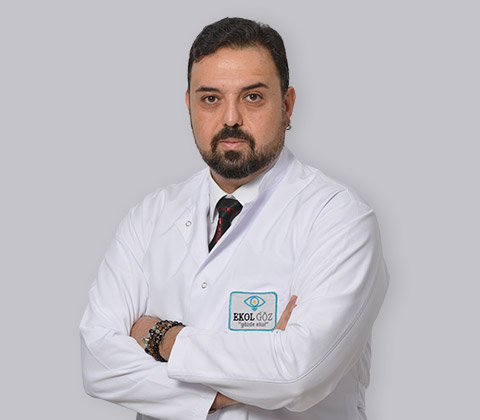 He was born in Izmir, in 1971. He attended summer school at Mids School of English, Eastbourn, England for learning a foreign language while he was in Bornova Anatolian High School and graduated with a high degree. He started his medical education at Ege University and continued with his specialization at JL Uni-Giessen, Germany, where he had the chance of working peer to peer with names such as Prof. Dr. Karl W. Jacobi, Prof Dr. Herbert Kaufmann, Prof. Dr. S. Pavlovic. Then, he found the opportunity to further his education in the field of refractive surgery by working with the most important names, such as Prof. Dr. T. Kohnen, JWG Uni-Frankfurt, Prof. Dr. I. Pallikaris, University of Crete, Prof Dr. Mahmut Kaşkaloğlu, Ege University Faculty of Medicine and Kaşkaloğlu Eye Hospital. Besides, he did scientific studies about medical glaucoma treatment, which is his other field of interest, with Ass. Prof. Dr. Karl Georg Schmidt, CGC Uni-Dresden. He is a member of DOG, ESCRS, ISRS of the AAO and TOD. He is married and has one child.
He was born in Izmir, in 1971. He attended summer school at Mids School of English, Eastbourn, England for learning a foreign language while he was in Bornova Anatolian High School and graduated with a high degree. He started his medical education at Ege University and continued with his specialization at JL Uni-Giessen, Germany, where he had the chance of working peer to peer with names such as Prof. Dr. Karl W. Jacobi, Prof Dr. Herbert Kaufmann, Prof. Dr. S. Pavlovic. Then, he found the opportunity to further his education in the field of refractive surgery by working with the most important names, such as Prof. Dr. T. Kohnen, JWG Uni-Frankfurt, Prof. Dr. I. Pallikaris, University of Crete, Prof Dr. Mahmut Kaşkaloğlu, Ege University Faculty of Medicine and Kaşkaloğlu Eye Hospital. Besides, he did scientific studies about medical glaucoma treatment, which is his other field of interest, with Ass. Prof. Dr. Karl Georg Schmidt, CGC Uni-Dresden. He is a member of DOG, ESCRS, ISRS of the AAO and TOD. He is married and has one child.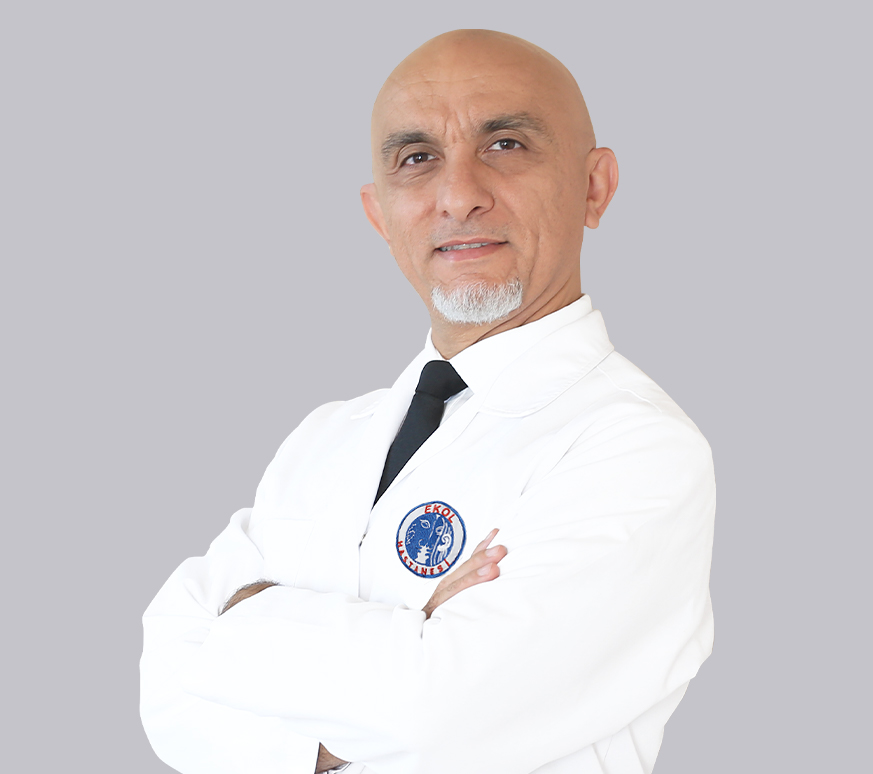 He graduated from Hacettepe University Faculty of Medicine in 1998. He completed his speciality in İzmir Dokuz Eylül University Faculty of Medicine Department of Eye Diseases between 1998 and 2002. He studied Retinal Surgeries in Munich Ludwig – Maximillian University Faculty of Medicine, Department of Eye Diseases. Special Interests: Cataract Surgeries (Multifocal, Trifocal, Toric Intraocular Lenses), Laser Cataract Surgeries (Femtosecond, Laser Cataract), Excimer Laser Surgeries (Lasik, Lasek, PRK) and Medical & Surgical Retinal Surgeries, Eyelid Surgeries. He has many articles published which were also scientifically indexed. He has oral and poster presentations in national & international science meetings. He is an active member of Turkish Society of Ophthalmology. He speaks English & German well, and married with 2 children.
He graduated from Hacettepe University Faculty of Medicine in 1998. He completed his speciality in İzmir Dokuz Eylül University Faculty of Medicine Department of Eye Diseases between 1998 and 2002. He studied Retinal Surgeries in Munich Ludwig – Maximillian University Faculty of Medicine, Department of Eye Diseases. Special Interests: Cataract Surgeries (Multifocal, Trifocal, Toric Intraocular Lenses), Laser Cataract Surgeries (Femtosecond, Laser Cataract), Excimer Laser Surgeries (Lasik, Lasek, PRK) and Medical & Surgical Retinal Surgeries, Eyelid Surgeries. He has many articles published which were also scientifically indexed. He has oral and poster presentations in national & international science meetings. He is an active member of Turkish Society of Ophthalmology. He speaks English & German well, and married with 2 children.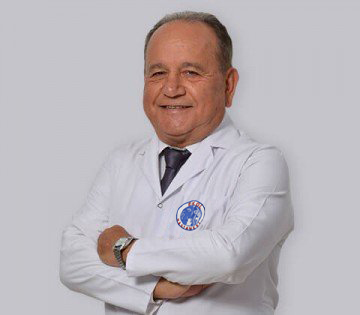 He graduated from Istanbul University, Faculty of Medicine and completed his specialty training in S.S.K Istanbul Hospital in 1984. He worked at Çanakkale State Hospital between 1984 and 2007. After 2007, he worked in private sector health units. He is an active member of The Turkish Ophthalmology Association and American Cataract and Refractive Association. Anterior segment (cataract) medical retina, glaucoma and contact lens are his areas of interest. He has a good command of English.
He graduated from Istanbul University, Faculty of Medicine and completed his specialty training in S.S.K Istanbul Hospital in 1984. He worked at Çanakkale State Hospital between 1984 and 2007. After 2007, he worked in private sector health units. He is an active member of The Turkish Ophthalmology Association and American Cataract and Refractive Association. Anterior segment (cataract) medical retina, glaucoma and contact lens are his areas of interest. He has a good command of English.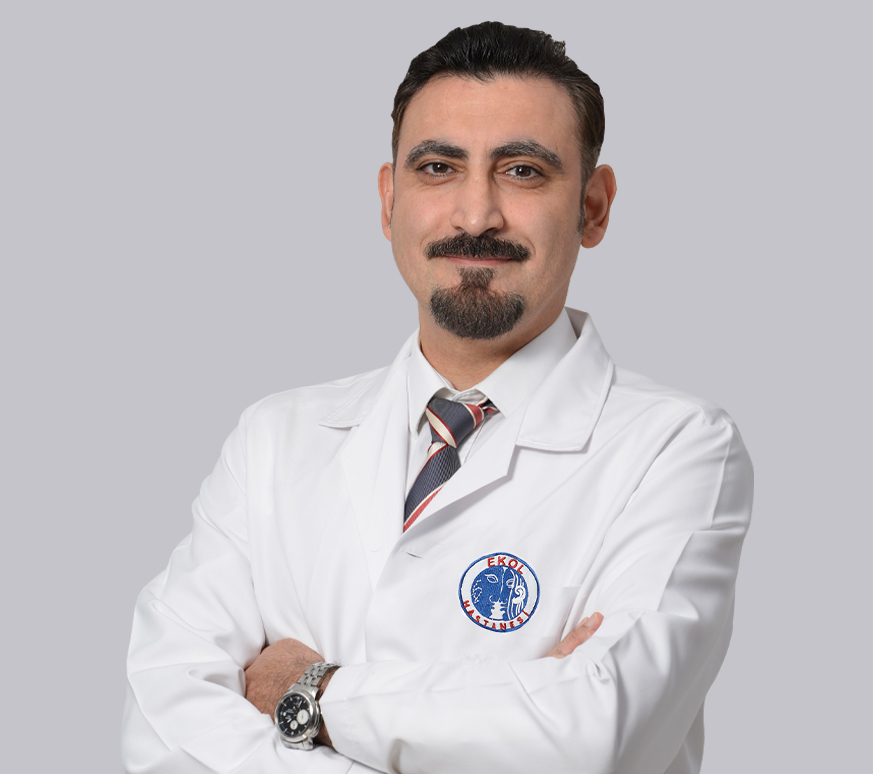 He was born in 1977. He graduated from Ege University. Fields of Interest: Cataract Surgery (Monofocal, Multifocal, Trifocal, EDOF, Toric Lenses) Excimer Laser (Femtosecond LASIK, PRK, No-Touch) ICL Keratoconus - Crosslink, Hard Contact Lens Application, Intrastromal Corneal Ring Strabismus Surgery Oculoplastic Surgery (Eyelid Aesthetic Surgery, Ectropium, Entropium, Ptosis, Probing, Tear Duct Obstruction) Pterygium Surgery (with Autograft) Glaucoma Medical and Laser Therapy Retinal Diseases (Intraocular Drug Injections, Diabetic Retinopathy, Yellow Spot Disease, Retinal Tears) Soft Contact Lens Inspection and Application He is a member of Turkish Association of Ophthalmology. He is married.
He was born in 1977. He graduated from Ege University. Fields of Interest: Cataract Surgery (Monofocal, Multifocal, Trifocal, EDOF, Toric Lenses) Excimer Laser (Femtosecond LASIK, PRK, No-Touch) ICL Keratoconus - Crosslink, Hard Contact Lens Application, Intrastromal Corneal Ring Strabismus Surgery Oculoplastic Surgery (Eyelid Aesthetic Surgery, Ectropium, Entropium, Ptosis, Probing, Tear Duct Obstruction) Pterygium Surgery (with Autograft) Glaucoma Medical and Laser Therapy Retinal Diseases (Intraocular Drug Injections, Diabetic Retinopathy, Yellow Spot Disease, Retinal Tears) Soft Contact Lens Inspection and Application He is a member of Turkish Association of Ophthalmology. He is married.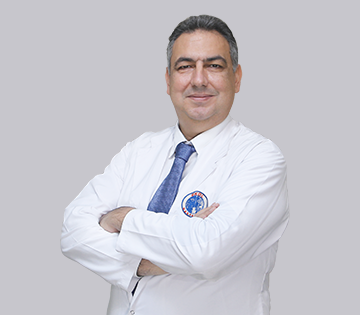 Dr. Kaan Okan Erdem was born in İzmir, in 1968. He finished middle school in Private İzmir Türk College and high school in Atatürk High School. He studied medicine in Selçuk University Faculty of Medicine. He is an active member of European Association of Cataract and Refractive Surgery, European Association of Ophthalmic Plastic and Reconstructive Surgery. He is interested in cataract, refractive surgery, oculoplastic and reconstructive surgery (upper and lower eyelids, tumour removals around the eye, entropium, ectropium ptosis, blepharoplasty), eye ultrasound, medical retinal and glaucoma. He speaks fluent English and married with 2 children.
Dr. Kaan Okan Erdem was born in İzmir, in 1968. He finished middle school in Private İzmir Türk College and high school in Atatürk High School. He studied medicine in Selçuk University Faculty of Medicine. He is an active member of European Association of Cataract and Refractive Surgery, European Association of Ophthalmic Plastic and Reconstructive Surgery. He is interested in cataract, refractive surgery, oculoplastic and reconstructive surgery (upper and lower eyelids, tumour removals around the eye, entropium, ectropium ptosis, blepharoplasty), eye ultrasound, medical retinal and glaucoma. He speaks fluent English and married with 2 children.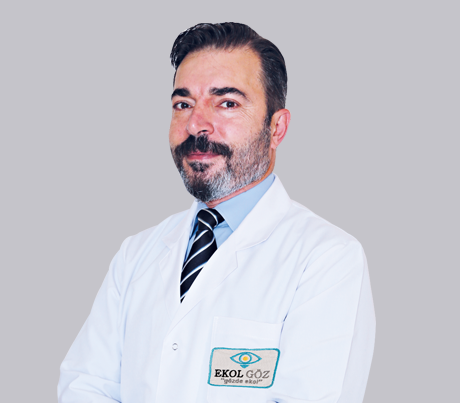 He graduated from Dokuz September University Faculty of Medicine in 1996. He completed his specialized education in the Department of Ophthalmology of the Faculty of Medicine of the Aegean University between 1996-2001 and earned the title of ophthalmologist Dec.
He has published numerous scientific articles that fall into international scientific indexes. There are numerous oral and poster presentations to national and international scientific meetings. He is an active member of the Turkish Ophthalmology Association (Tod).
He speaks good English, Opr. Dr. Uğur Karagöz is the father of 2 children.
Special interests:
Cataract surgery (multifocal, trifocal, Toric intraocular lenses)
Cataract surgery with laser (Femtosecond Laser Cataract)
Excimer laser surgeries (Lasik, Lasek, PRK)
Medical and surgical Retina
Eyelid Surgeries
He graduated from Dokuz September University Faculty of Medicine in 1996. He completed his specialized education in the Department of Ophthalmology of the Faculty of Medicine of the Aegean University between 1996-2001 and earned the title of ophthalmologist Dec.
He has published numerous scientific articles that fall into international scientific indexes. There are numerous oral and poster presentations to national and international scientific meetings. He is an active member of the Turkish Ophthalmology Association (Tod).
He speaks good English, Opr. Dr. Uğur Karagöz is the father of 2 children.
Special interests:
Cataract surgery (multifocal, trifocal, Toric intraocular lenses)
Cataract surgery with laser (Femtosecond Laser Cataract)
Excimer laser surgeries (Lasik, Lasek, PRK)
Medical and surgical Retina
Eyelid Surgeries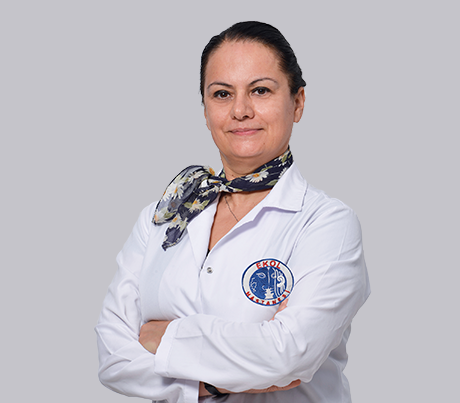 Born in Cyprus Serdarlı, he graduated from Nicosia Turkish High School. He graduated from Dokuz Eylul University Faculty of Medicine.
He completed his specialization in Atatürk Health Site Yeşilyurt State Hospital with his thesis on the comparison of the rear camera lens application and the front camera lenses, which was started to be applied for the first time in the clinic under the management of Zühal Çakırca, the clinical chief. She worked as a contact lens center in İzmir for three years and then as chief physician at Karşıyaka Kızılay Fatma Kutluay Dispensary.
He continued to work in Karşıyaka by establishing the Private Yalı Polyclinic in 2005 and the Private Yalı Eye Health Branch Center in 2007, his special interests are refraction and contact lenses.
He is a member of the Turkish Ophthalmology Association.
Born in Cyprus Serdarlı, he graduated from Nicosia Turkish High School. He graduated from Dokuz Eylul University Faculty of Medicine.
He completed his specialization in Atatürk Health Site Yeşilyurt State Hospital with his thesis on the comparison of the rear camera lens application and the front camera lenses, which was started to be applied for the first time in the clinic under the management of Zühal Çakırca, the clinical chief. She worked as a contact lens center in İzmir for three years and then as chief physician at Karşıyaka Kızılay Fatma Kutluay Dispensary.
He continued to work in Karşıyaka by establishing the Private Yalı Polyclinic in 2005 and the Private Yalı Eye Health Branch Center in 2007, his special interests are refraction and contact lenses.
He is a member of the Turkish Ophthalmology Association.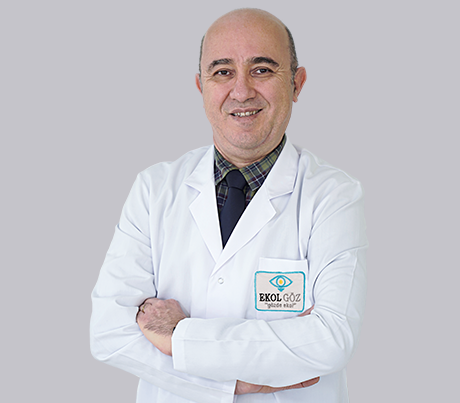 He graduated from Ege University Faculty of Medicine in 1989. Specialization he completed his education in Izmir Education and Research between 1991-1994. He completed his Ophthalmology Department at the Hospital. International A large number of scientific articles included in scientific indexes have been published. Numerous oral and poster presentations to national and international scientific meetings has a presentation. He is an active member of the Turkish Ophthalmology Association (TOD). Fluent in English, Opr. Dr. Gazi Duman is married and has two children. Special interests: Cataract Surgery (multifocal, trifocal, toric intraocular lenses) Cataract Surgery with Laser (Femtosecond Laser Cataract) Excimer Laser Surgery (Lasik, Lasek, PRK) Medical and Surgical Retina Eyelid Surgery Strabismus Surgery
He graduated from Ege University Faculty of Medicine in 1989. Specialization he completed his education in Izmir Education and Research between 1991-1994. He completed his Ophthalmology Department at the Hospital. International A large number of scientific articles included in scientific indexes have been published. Numerous oral and poster presentations to national and international scientific meetings has a presentation. He is an active member of the Turkish Ophthalmology Association (TOD). Fluent in English, Opr. Dr. Gazi Duman is married and has two children. Special interests: Cataract Surgery (multifocal, trifocal, toric intraocular lenses) Cataract Surgery with Laser (Femtosecond Laser Cataract) Excimer Laser Surgery (Lasik, Lasek, PRK) Medical and Surgical Retina Eyelid Surgery Strabismus Surgery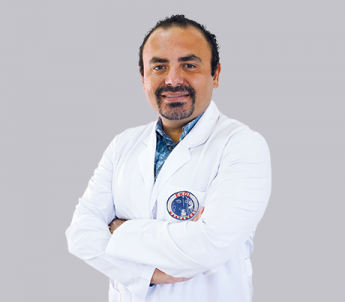 He graduated from Dokuz September University Faculty of Medicine in 2005. September 2005-2010, he completed his specialty education in the Department of Ophthalmology of the Faculty of Medicine of Dokuz Eylül University and earned the title of ophthalmologist. Dec.
He has published a large number of scientific articles that have entered international scientific indexes. There are many oral and poster presentations to national and international scientific meetings. He is an active member of the Turkish Ophthalmology Association (TOD), the American Academy of Ophthalmology Association and the European Society of Cataract and Refractive Surgeons. He won the European Ophthalmology Qualification Exam (European Board of Ophthalmology) and became a FEBO.
Opr, who is married and has 1 child. Dr. Hüseyin Aslankara speaks English well.
Special interests:
Retinal Diseases and Vitreoretinal Surgery
Cataract Surgery (multifocal, trifocal, toric intraocular lenses)
Cataract Surgery with Laser (Femtosecond Laser Cataract)
Excimer Laser Surgeries (Lasik, Lasek, PRK)
Strabismus Treatment and Surgery
Children's Eye Diseases
Eye Pressure (Glaucoma) Treatment and Operations
Retinopathy of Prematurity and Its Treatment
Eyelid Surgeries
He graduated from Dokuz September University Faculty of Medicine in 2005. September 2005-2010, he completed his specialty education in the Department of Ophthalmology of the Faculty of Medicine of Dokuz Eylül University and earned the title of ophthalmologist. Dec.
He has published a large number of scientific articles that have entered international scientific indexes. There are many oral and poster presentations to national and international scientific meetings. He is an active member of the Turkish Ophthalmology Association (TOD), the American Academy of Ophthalmology Association and the European Society of Cataract and Refractive Surgeons. He won the European Ophthalmology Qualification Exam (European Board of Ophthalmology) and became a FEBO.
Opr, who is married and has 1 child. Dr. Hüseyin Aslankara speaks English well.
Special interests:
Retinal Diseases and Vitreoretinal Surgery
Cataract Surgery (multifocal, trifocal, toric intraocular lenses)
Cataract Surgery with Laser (Femtosecond Laser Cataract)
Excimer Laser Surgeries (Lasik, Lasek, PRK)
Strabismus Treatment and Surgery
Children's Eye Diseases
Eye Pressure (Glaucoma) Treatment and Operations
Retinopathy of Prematurity and Its Treatment
Eyelid Surgeries